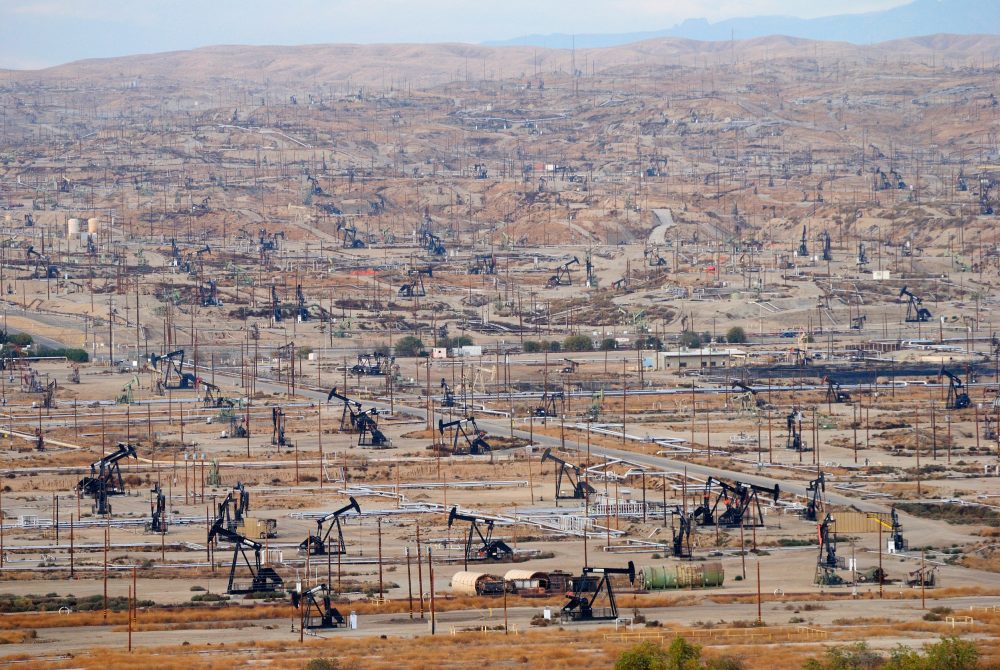California is famous for many things, but lately it has become a poster child for climate disasters. From its vanishing beaches and surging wildfires to the floods and droughts of its Central Valley, the Golden State has some of the world’s most vulnerable ecosystems. Which helps explain why the state so often sets the standard for U.S. climate policies.
This fall, California moved even further out in front. It may be one of 50 states, but its US$3.6-trillion gross domestic product makes it the world’s fifth-largest economy. So when the California State Assembly approved the call for a Fossil Fuel Non-Proliferation Treaty on September 1, it became the largest economic entity to commit to ending the destructive reign of coal, oil and gas. A glaring improvement on the 2015 Paris Agreement, which didn’t mention fossil fuels, the treaty resolution proposes a global plan to halt the expansion of hydrocarbon production and then phase out fossil fuels as quickly as possible.
To date, the treaty’s signatories have included cities and some smaller nations, particularly in the Pacific Islands threatened by rising sea levels. As America’s third-largest oil-producing state, California faced tough opposition from its oil sector and 40 industry groups.
Climate scientist Aradhna Tripati said she hopes California’s resolution “will send a resounding message that prioritizes the preservation of our planet and our communities over short-term gains.” The first step for that message: the resolution urges President Joe Biden to support opening negotiations on an international fossil fuel treaty.
The green transition requires accurate, timely information on polluters’ activities. So California grabbed the spotlight again mid-September when legislators approved two bills mandating that large companies disclose their greenhouse gas emissions and climate-related financial risks. Senate Bill 253 faced particularly heavily opposition for compelling companies to disclose Scope 3 emissions, indirect upstream and downstream emissions that can account for up to 90% of a company’s carbon footprint.
While the bills were opposed by the California Chamber of Commerce and others, they were praised by a number of major companies, including Apple, Microsoft, Ikea and Google, for levelling the playing field.
“[Bill] 253 does not dictate how [companies] should reduce their carbon emissions,” said Senator Scott Wiener, who sponsored the bills. “But by making clear that within a couple of years these emissions are going to become public, the corporations have a huge incentive to innovate to reduce those emissions.”
And then the hammer dropped. Four days after passing the watershed climate-disclosure legislation, California filed suit against five major oil companies and the American Petroleum Institute, claiming that they deliberately downplayed the risks posed by fossil fuels and that that activity has caused tens of billions of dollars in damage. The New York Times called it “the latest and most significant lawsuit to target oil, gas and coal companies over their role in causing climate change.”
This climate crisis is a fossil fuel crisis . . . we need to call that out. For decades and decades, the oil industry has been playing each and every one of us in this room for fools.
–California Governor Gavin Newsom
“Enough is enough,” said the state. California’s 135-page complaint claims that “oil and gas company executives have known for decades that reliance on fossil fuels would cause these catastrophic results, but they suppressed that information from the public and policymakers by actively pushing out disinformation on the topic.” The suit seeks creation of a mitigation fund to cover future climate-related disasters.
“California taxpayers shouldn’t have to foot the bill for billions of dollars in damages – wildfires wiping out entire communities, toxic smoke clogging our air, deadly heat waves, record-breaking droughts parching our wells,” Governor Gavin Newsom said in a statement.
The oil majors were generally reluctant to respond, but Shell summed up their position: “We do not believe the courtroom is the right venue to address climate change.”
California is not the first government in the country to sue the oil majors. Since 2017, seven states and 35 municipalities, including New York City and the District of Columbia, have launched similar suits. But Cali’s status as a top oil producer makes this a watershed moment.
As Newsom told the UN Climate Ambition Summit in September, “This climate crisis is a fossil fuel crisis . . . we need to call that out. For decades and decades, the oil industry has been playing each and every one of us in this room for fools.”
In a world plagued by disinformation and denial, California’s courage to name names and set new standards should inspire more timid jurisdictions.







